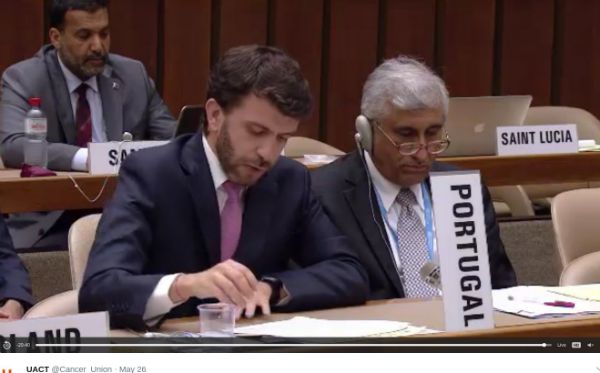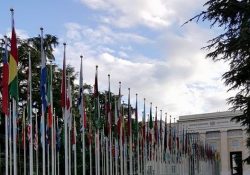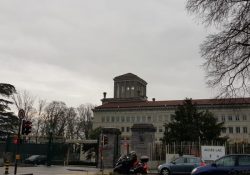The United Nations Human Rights Council (HRC) convened its 35th session from 6 June 2017 to 23 June 2017. During HRC35 (which took place in Room XX of the UN Palais des Nations in Geneva), a group of 21 countries tabled a resolution entitled, “The right of everyone to the enjoyment of the highest attainable standard of physical and mental health in the implementation of the 2030 Agenda for Sustainable Development”. Continue Reading →
As reported by Knowledge Ecology International (KEI), on 6 June 2017, the World Trade Organization (WTO), published a paper tabled by Brazil, China, Fiji, India, and South Africa, entitled “Intellectual Property and the Public Interest.” In their communication (IP/C/W/630), the proponents called for a series of discussions at the WTO TRIPS Council on Intellectual Property and the Public Interest. Continue Reading →
In February 2016, KEI submitted a FOIA to USTR requesting “all correspondence and notes sent internally by the Office of the US Trade Representative as well as with Colombian government officials, other foreign government officials, and non-governmental persons or entities regarding efforts in the government of Colombia to issue compulsory licenses on medical technologies. Continue Reading →
In the run up to the 70th World Health Assembly (22 May 2017 – 31 May 2017), the World Health Organization prepared a document (A70/INF./4, 16 May 2017) entitled, Voluntary contributions by fund and by contributor, 2016. Total voluntary contributions to WHO in 2016 amounted to $1,717,219,177 which represented a dip from the 2015 figure of $1,836,970,206.
Here is a non-exhaustive list detailing the sources of voluntary contributions to WHO and the size of their respective contributions in 2016.
Continue Reading →
(More on government funded inventions here. Other KEI comments on NIH licenses are found here.) On May 31, 2017, we sent the following comment to the NIH regarding the proposed exclusive license on certain patents for cancer treatment to GeneXion Oncology. May 31,… Continue Reading →
Portugal delivered the following statement at the 70th World Health Assembly on agenda item, 13.3 – Global shortage of, and access to medicines and vaccines.

In relation to the Report of the United Nations High-Level Panel on Access to Medicines (UNHLP), the delegation of Portugal quoted the intervention delivered by the Portuguese Minister of Health, Professor Campos Fernandes at the plenary of the 70th World Health Assembly.
Continue Reading →
23 May 2017
Groups ask Army to reconsider decision that would allow French firm to charge the US anything it wants on a federally funded Zika vaccine
CONTACT: Zack Struver, zack.struver@keionline.org, +1 (914) 582-1428
Andrew Goldman, andrew.goldman@keionline.org
James Love, james.love@keionline.org, +1 (202) 361-3040
Continue Reading →
After at least eight rounds of negotiation, including two Geneva-based negotiations held on 12 May 2017 and 17 May 2017, the G20 Health Ministers meeting, convened in Berlin from 19-20 May 2017 issued the following declaration.
In relation to the R&D pipeline for developing new antimicrobial therapies, the G20 recognized “the importance of fostering R&D for new antimicrobials, alternative therapies, vaccines and rapid-point-of care diagnostics, in particular for priority pathogens as identified by WHO and for tuberculosis.”
Continue Reading →
For quite a more detail on this issue, see /zika.
2016 January: Walter Reed Army Institute of Research (WRAIR) begins development of a vaccine candidate for Zika virus, based on its work in developing vaccines “against other flaviviruses, such as yellow fever, dengue and Japanese encephalitis.”
Continue Reading →
On May 3, 2017, 29 civil society organizations and 33 health professionals, activists, and economists — including Nobel Prize laureate Joseph Stiglitz — asked delegates to the World Health Assembly (WHA) to support a feasibility study on the progressive delinkage of the costs of research and development from the price of cancer medicines. The groups and experts sent a letter to the delegates.
Continue Reading →


